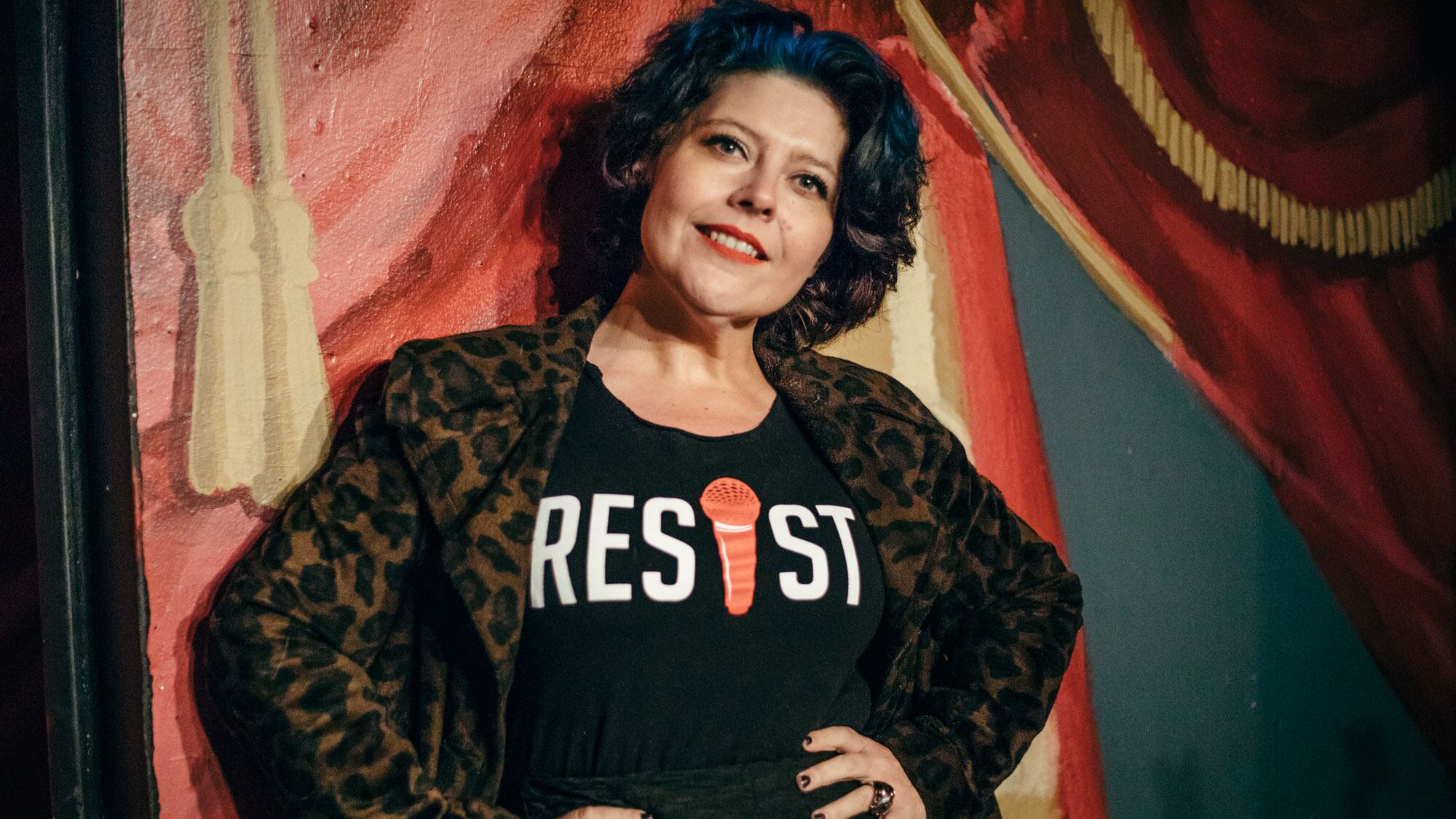Belinda Carroll is known for her jokes.
The local comedian co-founded Portland's Queer Comedy Festival last July and tours nationally performing standup. But decades before taking the stage, she was agitating in the Portland streets, making lesbian experiences visible and demanding equal rights for the queer community.
The Portland native came out as a teenager in the early '90s, right around the time Oregon was voting on Ballot Measure 9, which would have amended the state constitution to require state and local government to discriminate against LGBTQ people.
The measure was ultimately shut down, and much has changed in the culture since then. But Carroll, who took over organizing the Portland Pride Parade's Dyke March in 2011, says there is still much work to do.
Carroll spoke to WW about coming out in a fundamentalist family, campaigning against Measure 9, organizing protests with the Lesbian Avengers and why Pride still matters.
WW: When did the Dyke March start?
Belinda Carroll: We had the first Dyke March in June of 1994 at Pride. I was only 16 at the time, but they let me hang out. I remember there was an Oregonian article from the day after the march, and on the front page there was a photo of the Dyke March sign with my girlfriend and I on either side wearing shirts that said "I'm 6" and "I'm 9." We had big Mohawks and chain wallets. I remember my mom freaked out because she's an evangelical Christian and was mortified. She was like, "We need to talk about this. Everybody is going to know now!"
Have you always been an activist?
I got involved with the "No on 9" campaign in 1993. I phone banked for "No on 9" and got dragged to a Lesbian Avengers meeting with my girlfriend. Lesbian Avengers was a direct-action group that existed in the '90s, and their focus was to bring lesbian voices to the forefront. One of the actions we organized was kissing at the Cadillac Cafe, because the owners had kicked out a lesbian couple for kissing. We ended up making out in front of the restaurant to protest. It was pretty fun.
What has changed since the first Dyke March?
Now, we call the city and we go, "Hey, we need a permit for Dyke March," and they go, "Is it 6 o'clock again?" We say, "Yeah," and they give us the permit. Back then, we had to convince them. We had to fight for permits, and there was huge blowback. We'd put up posters and then have to repaste everything because people would just take them down.
There was a time when I first came out that I didn't hang out with straight people. I hung out with almost all gay people because being around straight people was uncomfortable. People would not understand you or ask you weird questions—or they'd feel like, "Oh, this is the time for me to chat up a gay." Now, I feel like there is much more acceptance and much more of a cultural understanding. I feel like 90 percent of people believe we should have our rights—and this is not just a Portland thing, this is me going to Des Moines, Iowa, and Madison, Wisconsin.
I feel like that shift has been a long time coming. But I also feel like it's pretty new.
Why is Pride still important?
We're living in the age of Trump, we're living in the age of #MeToo. All these things are coming to the surface and being dealt with. I feel like we're at a crux right now of being able to have those things rise up and say, "No, we're not going to allow them to happen," or just lying down and taking it and becoming Trump's America. I feel like that's one of the mechanisms behind gay pride and the Dyke March, and anything that's outwardly queer right now. Anything outwardly queer is standing up for the ability to push progress. Bigotry cannot be normalized, and bigotry cannot be tolerated.
The Portland Dyke March starts at Southwest Naito Parkway and Pine Street on Saturday, June 16, at 6 pm.

Q&A With Dyke March Organizer Belinda Carroll | Q&A With Queer Liberation Front Member Tony Hadden | Q&A with Greater Portland Trans Unity
Eleven Years and Multiple Venue Changes Later, Blow Pony Remains Portland's Wildest LGBTQ Dance Party | Five More Queer-Centric Dance Parties In Portland
An All-Portland Pride Playlist | A Pride Events Calendar
Portland Still Has Work To Do in Meeting LGBTQ Mental Health Care Needs
When I Had No Place Else To Go, I Lived in One of Portland's Last Bathhouses

